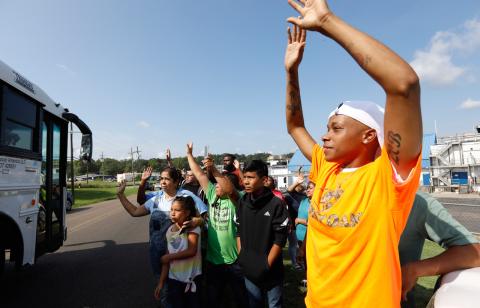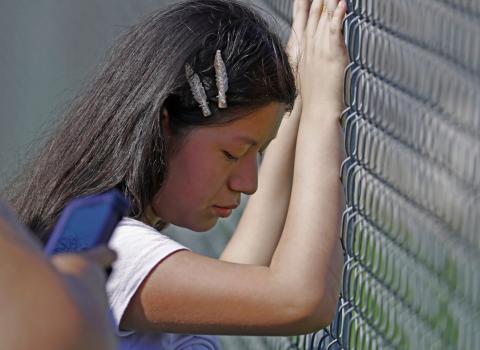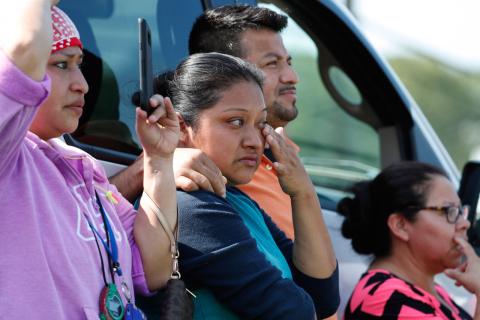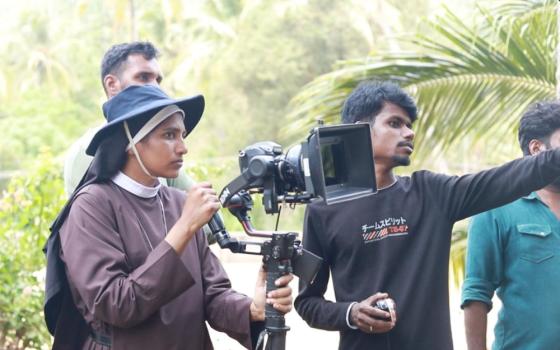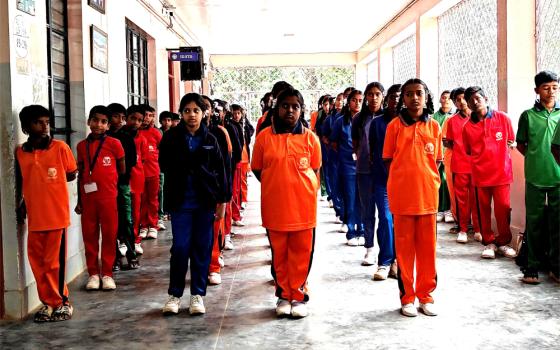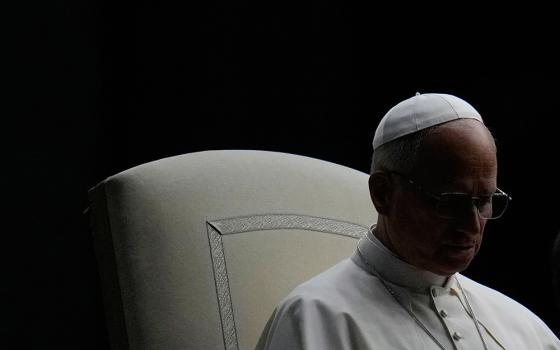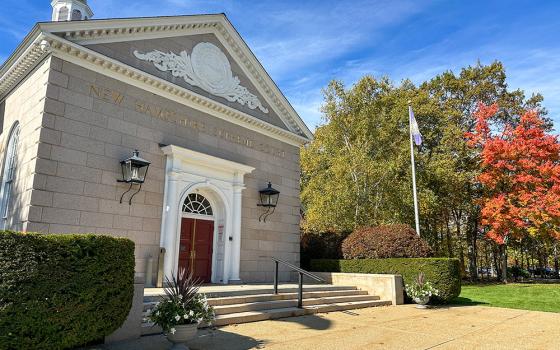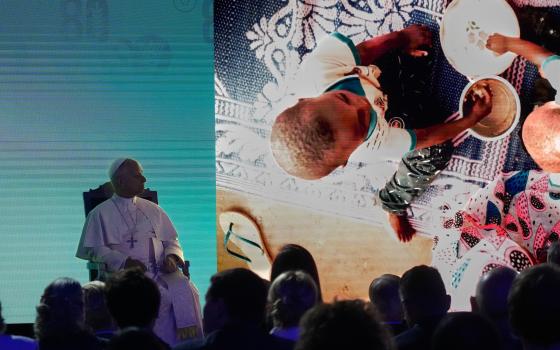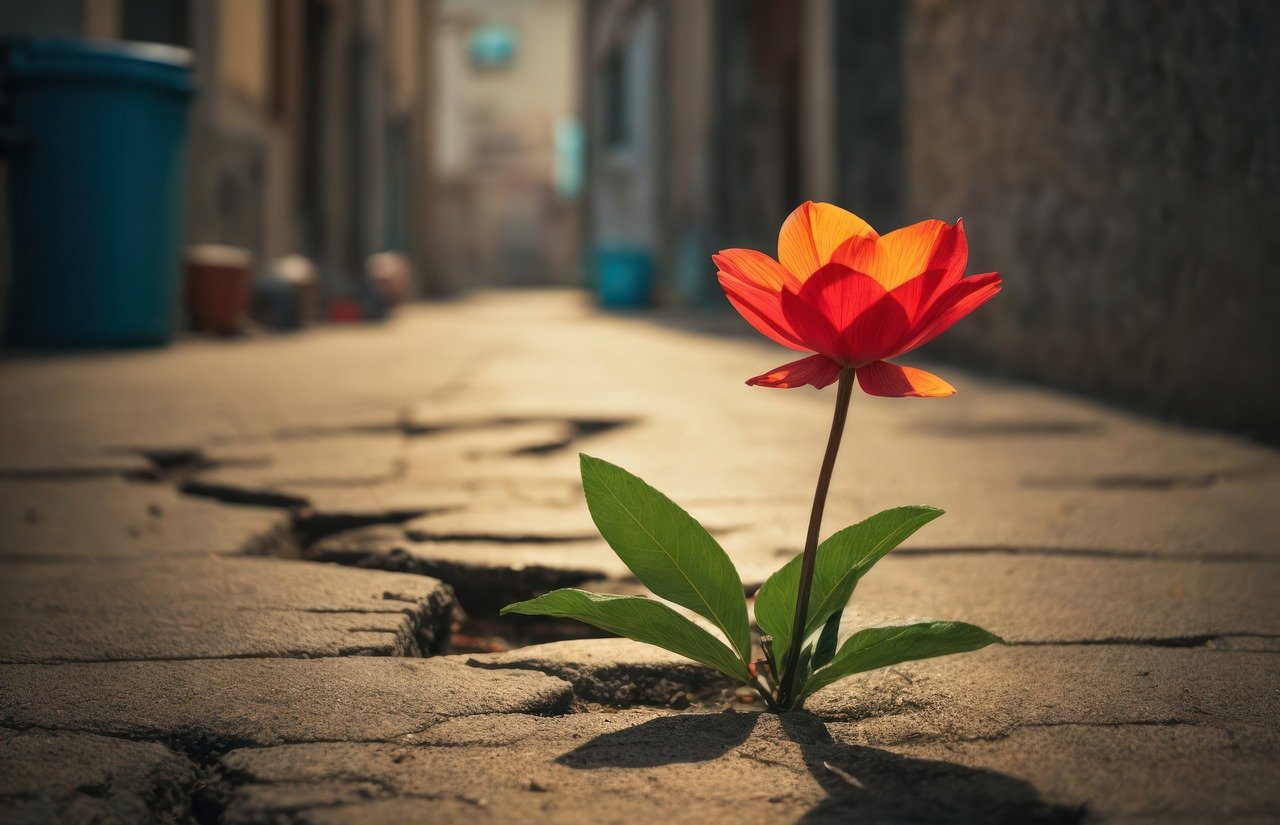
Faced with the physical and emotional toll the raid has taken on them, these individuals and communities have been tested in their resilience as they have had to cope with their losses alone. (Pixabay)
I recently visited Magdalena Gomez Gregorio and her family. She is a child affected by the raid in Morton, Mississippi, executed by U.S. Immigration and Customs Enforcement in which 680 people, including her dad, were detained in one of seven chicken plants raided. The raid happened on her first day of school.
Since the raid, I have accompanied the family from afar and in person when possible. In her own words, Magdalena says she "feels better" than she did four years ago, but she is aware that some of the detainees were deported. Others, out of fear, went to live elsewhere. Those who qualified under the conditions set by immigration are going through a legal process while awaiting their court hearings, hoping to live peacefully in this country after four years.
The individuals and communities affected by the raid have had to deal with the physical and emotional consequences on their own, testing their resilience. Despite this, people like Magdalena and her family have shown remarkable strength. Magdalena was only 11 years old at the time of the raid, but now, at 14, she displays a maturity beyond her years in the face of the harsh realities of life.
During my meeting with her, I asked her:
—How has your life and your family's life changed since the day of the raid?
She, in a shaky voice, replied:
—It has changed a lot. There were times when we cried, but now we are happy. I don't know how to express it, but having Dad by our side has changed a lot.
I noticed there were tears in her eyes as she remembered the day immigration took her dad, so I asked her if it still hurt her very much to remember it, and she tearfully replied:
—Yes, it is very sad to remember the moment when your dad leaves your side. But now it's different. We are no longer afraid of losing Dad again. We are happier because he is by our side, accompanying, advising, and helping us in our studies. We no longer have to worry about it happening again in our lifetime. That time was painful, but now we are happy because it is in the past.
Sr. Marta Lucía Tobón of the Guadalupan Missionaries of the Holy Spirit talks with Magdalena and her family after the raid in 2019. (Sr. María Elena Méndez)
After listening to her, I said:
—When I heard you speak to the press, I was very proud of you because you were clear and direct. You talked to the president of the United States and advocated for your dad and the families separated by the raid that morning.
She replied:
—Yes, because this didn't just happen to me. It affected several children who were left without a mother and father because they were deported.
I replied:
—Yes, that's true, but others are in the process of acquiring their residency. That was a positive part of the raid.
She nodded and added:
—Yes, we are happier now. We are no longer afraid that they will separate my dad from our family, and he will go to jail again.
Four years after the Aug. 7, 2019, immigrant raid in Mississippi — anxiety, depression, fear, and insecurity — are still palpable in the community in the face of family separation. #GSR #CatholicSisters
During the conversation, we recalled our first meeting two days after the raid when I went to help at St. Michael's Catholic Church in Forest: "As the phone kept ringing, I was asked to answer it. The first call was from a person in Pennsylvania who wanted to help the family of the girl who had spoken on television, and you were that girl. I didn't know you, so I went looking for you and found you. That person has been supporting your family to this day. Would you like to say something to him?" She replied: "Yes, I want to thank him for supporting me and my family and helping me feel happy again. He helped to ease my sadness. He is why my life has been better for a long time. I am very grateful, and I don't know how I will be able to repay him in the future, but I am so very grateful."
He dreams of you having a professional career one day, perhaps becoming an immigration lawyer or something else. "Well, the future will tell,” she said with a chuckle, "but I want to help other people like he helped me. Ed has been an angel in my life."
Srs. Obdulia Olivar, Marta Lucia Tobon, and Edith Lugo of the Guadalupan Missionaries of the Holy Spirit have supported families after the 2019 raids in Morton, Mississippi. (Sr. María Elena Méndez)
Edward [Ed], who called on the phone that morning, and I have worked as a team to accompany Magdalena and her family. To this day, we have not met in person, but we hope to meet in person, all three of us, sometime in the near future. For Magdalena, he has been a blessing in her life, and for Ed, as he puts it: "That little girl has changed my life." For my part, I thank God for using me as a bridge for the encounter between these two wonderful people.
This experience reminds me of the biblical account of the pilgrims on the road to Emmaus (Luke 24:13-35) when Jesus goes out to meet the discouraged disciples. In the same way, Ed made himself present in Magdalena and her family's path, moved by the pain of a little girl at the loss of her father. The close accompaniment has helped Magdalena trust again, transforming her sadness into joy and her fear into hope.
Sr. Gabriela Ramirez prays for and comforts a woman affected by the 2019 raid in Morton, Mississippi. (Sr. María Elena Méndez)
I thank God, Magdalena, "the viral girl," and her family because her broken voice on Aug. 7, 2019, will continue to cry out for justice on behalf of undocumented parents. I am sure that many girls like Magdalena will be leaders of social transformation in the country of their birth.
Four years later, I realize that tragedies can become blessings. In this meeting, there were no barriers of language, gender, age, religion, distance, social status, race or ethnicity. On the contrary, need was met by the generosity of the North and the South: Pennsylvania, Alabama, and Mississippi.
The immigration problem is global and most pressing in the United States. While governments and political parties use immigration as a weapon to gain positions, children like Magdalena fear their parents' possible deportation.
The story of Magdalena and her family shows us that courage and determination are a beacon of hope for those facing difficult situations. Although her story initially seemed devastating, her strength and determination resonate louder than ever. This story also shows us how people who join the cause, like Edward, make a big difference in the lives of others. In a world that is often divided, these stories remind us that compassion and support make a real and meaningful difference in people's lives.

